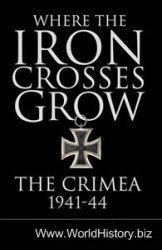The biographical tradition is a rich one. The concentration on the emperor noted above in connection with the narrative tradition is given free rein in imperial biographies, which survive for every emperor from Augustus to Constantine except Nerva, Trajan, a cluster of short-lived emperors in the middle of the third century (see Table 1.1), and Diocletian and the Tetrarchs. Their quality varies enormously (see below). The principal collections are Suetonius’ Caesars (Julius Caesar to Domitian) and the Historia Augusta (Hadrian to Carinus). Plutarch adds Lives of Galba and Otho, and, for the triumviral period, an important biography of Octavian’s opponent Antony. Constantine is the subject of two biographies, one by his contemporary Eusebius, Bishop of Caesarea, the other by a now-unknown author writing at the end of the fourth century (oddly titled The Lineage of the Emperor Constantine, since it focuses on the years of Constantine’s reign, 305-37). Besides the imperial biographies (and the fairly unreliable biographies of imperial heirs and rivals in the Historia Augusta; see below) there is also a biography of C. Julius Agricola by his son-in-law Tacitus, which focuses on Agricola’s conquests in Britain under the Flavians (77-84).
Biography is a less-than-ideal contributor to narrative since its organizational principle is generally topical (background, education, career, achievements, virtues, vices, idiosyncrasies, personal appearance, etc.) rather than chronological. And biographies of successive emperors inevitably overlap. The information considered relevant may also be different from that suitable to histories: Plutarch, for example, eschews ‘‘the accurate reporting of everything that occurred,’’ which he calls ‘‘the stuff of political history,’’ in favor of the memorable deeds and experiences of the emperors (Life of Galba 2.3). Not surprisingly, both he and Suetonius omit from their respective biographies of Otho military campaigns led by subordinates rather than by the emperor himself, while Tacitus in the Histories records both (1.79, 2.1215). At the other end of our period we find that the political history of the last decade of Constantine’s reign cannot be reconstructed from the literary sources alone, despite his two biographies (Averil Cameron 1997). On the other hand, the biographical genre allows for the inclusion of documents in a way that history proper does not, a feature to which we owe some precious items preserved by Suetonius (especially letters of Augustus) and some wild forgeries in the Historia Augusta (see, e. g., Syme 1968: 60-5 on a ‘‘letter of Hadrian’’ and Potter 1999a: 200 n. 86 for a partial list).
Suetonius’ 11 imperial biographies - the 12 Caesars commence with Julius - supply some of the history that is lost in the gaps in the texts of Dio and Tacitus for the period from Augustus to Domitian. Like Tacitus, Suetonius wrote in the early second century ce. He was not a senator, but a man of equestrian rank who rose through the imperial bureaucracy to be an important secretary (‘‘head of department’’) under Hadrian (Wallace-Hadrill 1983). The Lives are fullest at the beginning of the series, while the treatment of the Flavians (where Dio is fragmentary and Tacitus lost) is disappointingly brief. Much of historiographical value can be learned by comparing Suetonius’ biographies of Galba and Otho with those of Plutarch and with Tacitus’ narrative treatment of the same period (Hist. books 1-2; Damon 2003, Appendix 1).
Forged documents are only the tip of the problematical iceberg that is the Historia Augusta. Though it offers Lives of some 20 emperors, five imperial heirs who never became emperor, and 40 pretenders to imperial power (the first and last numbers are rounded because the labels ‘‘emperor’’ and ‘‘pretender’’ are artificially simplistic in this period), and though it is the fullest source for many of these reigns, it has to be used with great caution. To list the problems briefly:
1 Authorship and Date: Although the Historia Augusta purports to be written by six different authors in the time of Diocletian and Constantine, it is now agreed, with few dissenters, that the work was written at the end of the fourth century by a now unknown author under six different pseudonyms.
2 Purpose: Why this elaborate charade? No good answer has been found.
3 Sources: Citations are given both to actual (now lost) sources and to sources that never existed (Syme 1971a: 1-16; 1983: 98-108). Furthermore, some of the work’s sources (e. g. Herodian) are not named (Potter 1999a: 146). There may have been no useful sources for short-lived emperors such as Quintillus (whose very brief reign is incorporated in that of his brother Claudius II Gothicus [HA Claud. 12]) and for imperial heirs and rivals, whose Lives tend to be derived from the Life of the relevant emperor. But an absence of information did not prevent composition. The Lives of emperors in the Antonine and early Severan periods are generally accounted more reliable than the later ones; the Lives of Macrinus (an interloper in the Severan dynasty) and the last of the Severans, Alexander, are counted with the latter group. Scholarship on the Historia Augusta and on the history of the third century has done much to identify the facts in this work that stand up to scrutiny, facts that are of some use for the purpose of constructing a chronological narrative (Peachin and Potter, this volume). Extensive reliance on this source, however, is certainly perilous.
Between them narrative histories and imperial biographies provide us with information (of varying quality) about most of the years between the death of Julius
Caesar and the death of Constantine. To fill in the remaining gaps (the reigns of Philip the Arab and his successors, and of Diocletian and his co-rulers) and to supplement the record where it is thin (on Nerva, Trajan, Pius, and the whole period for which the Historia Augusta is the sole authority), we have recourse to texts that cover the whole of this period (and a good deal more) within an abbreviated (sometimes extremely brief) narrative.




 World History
World History









